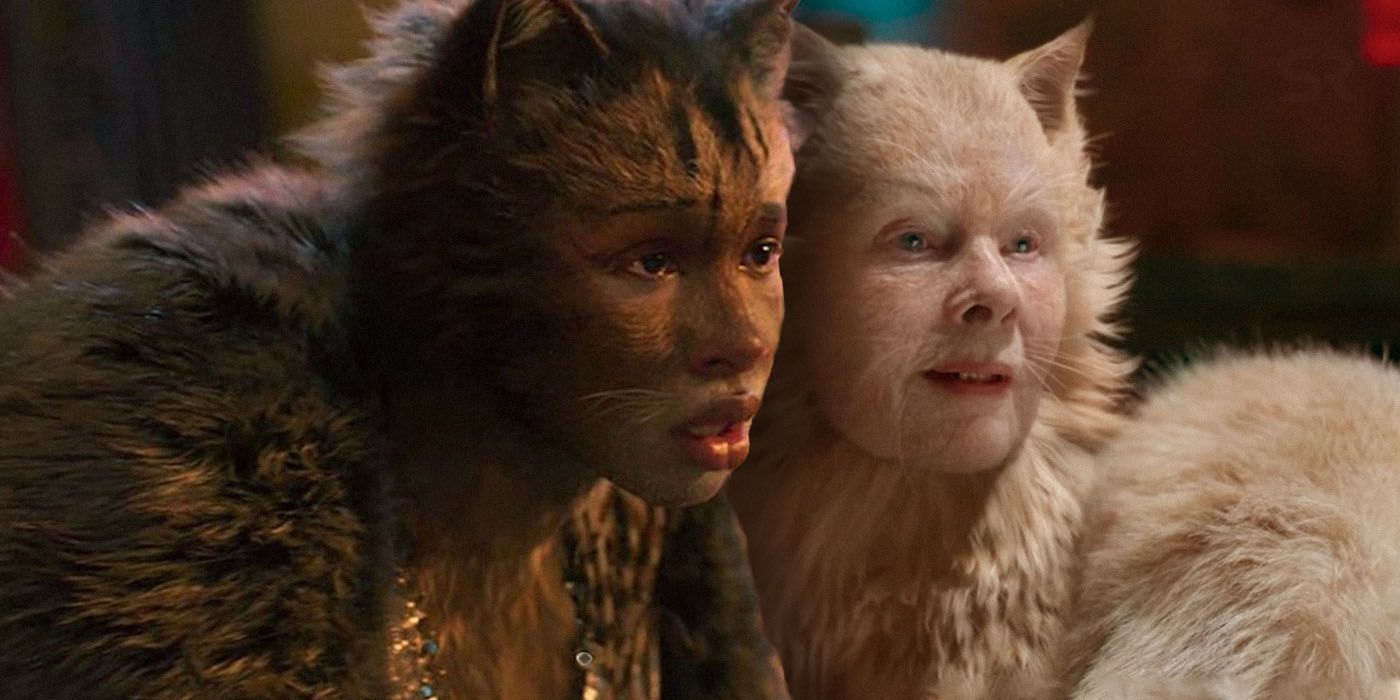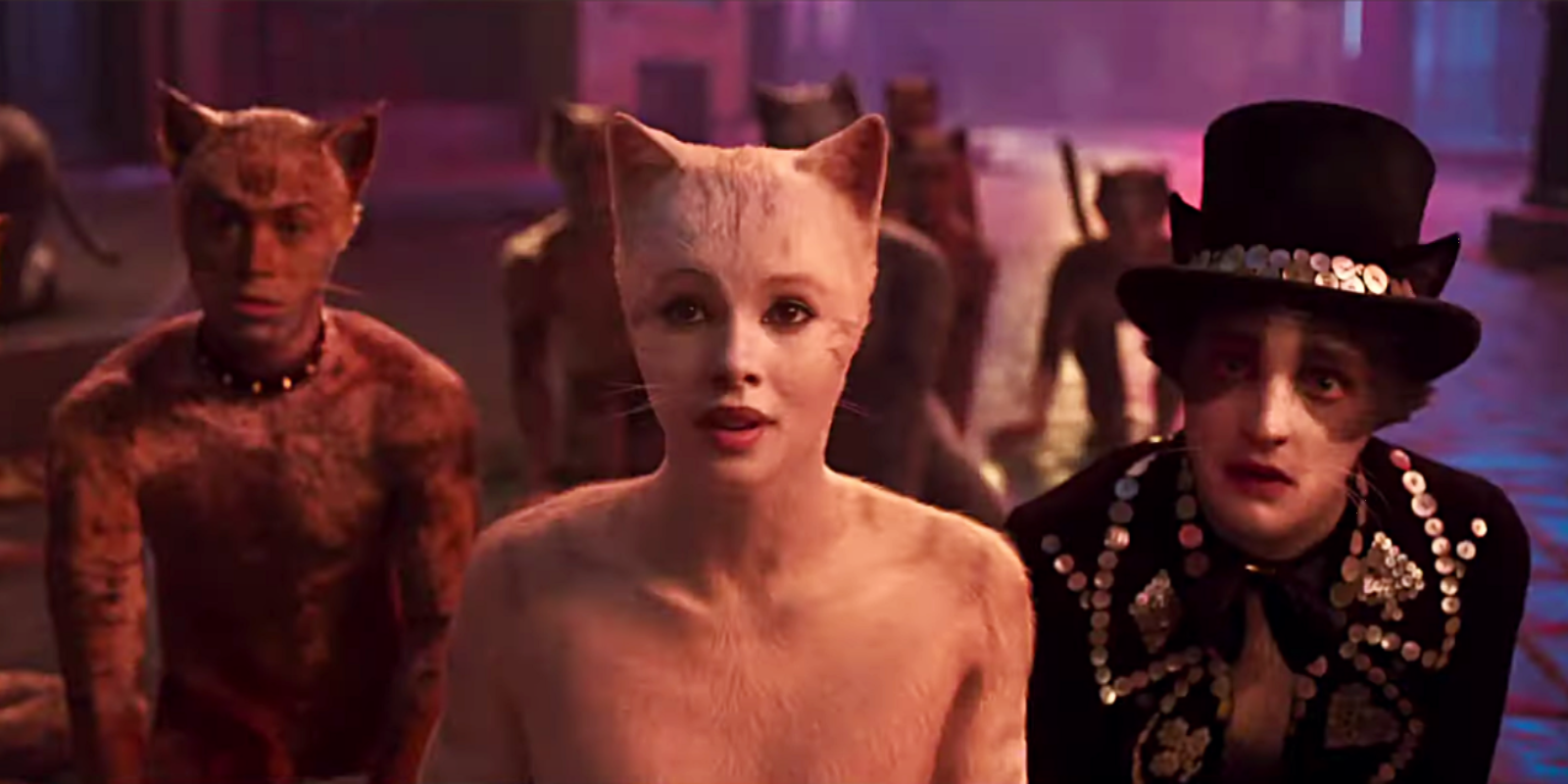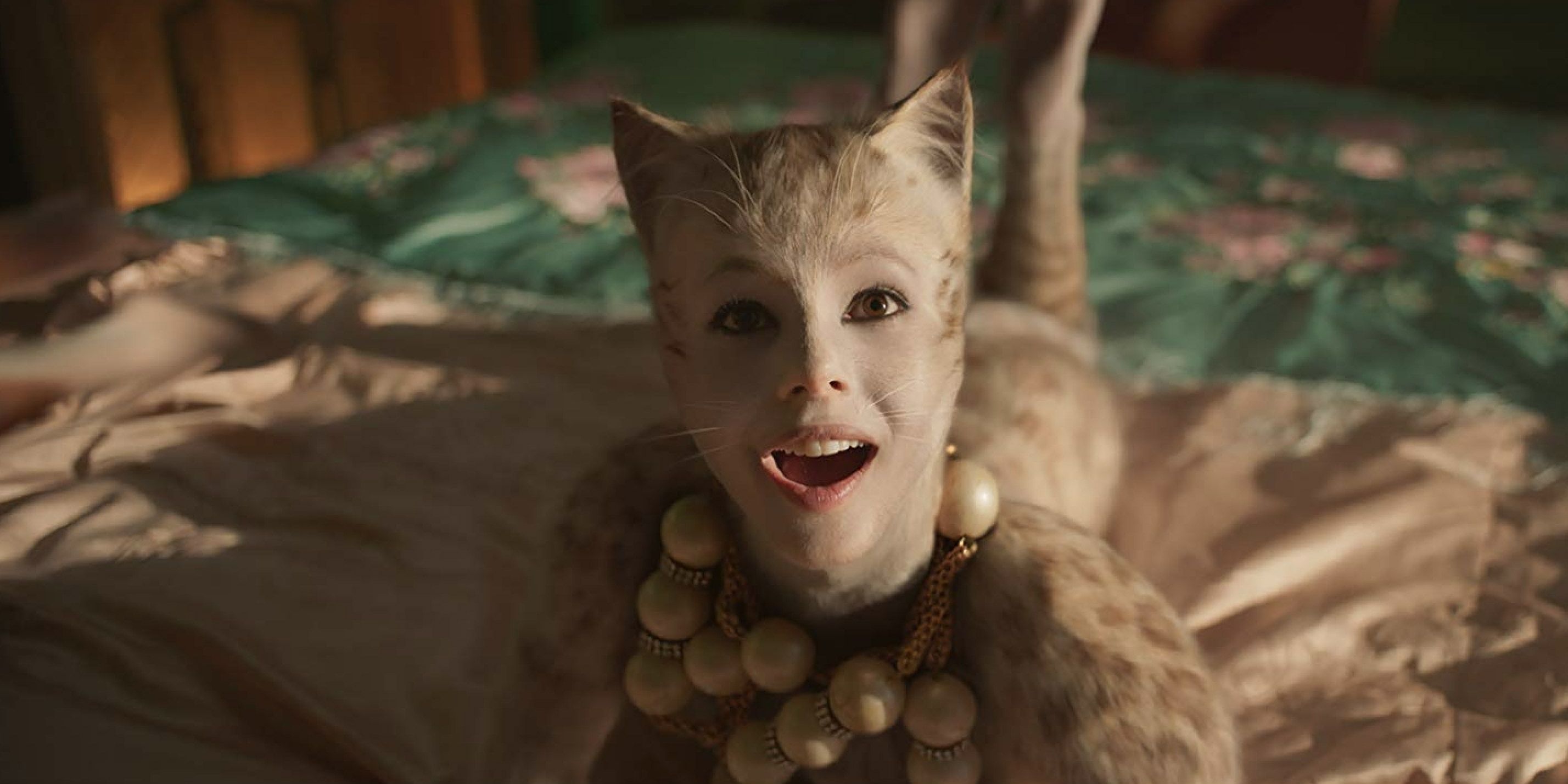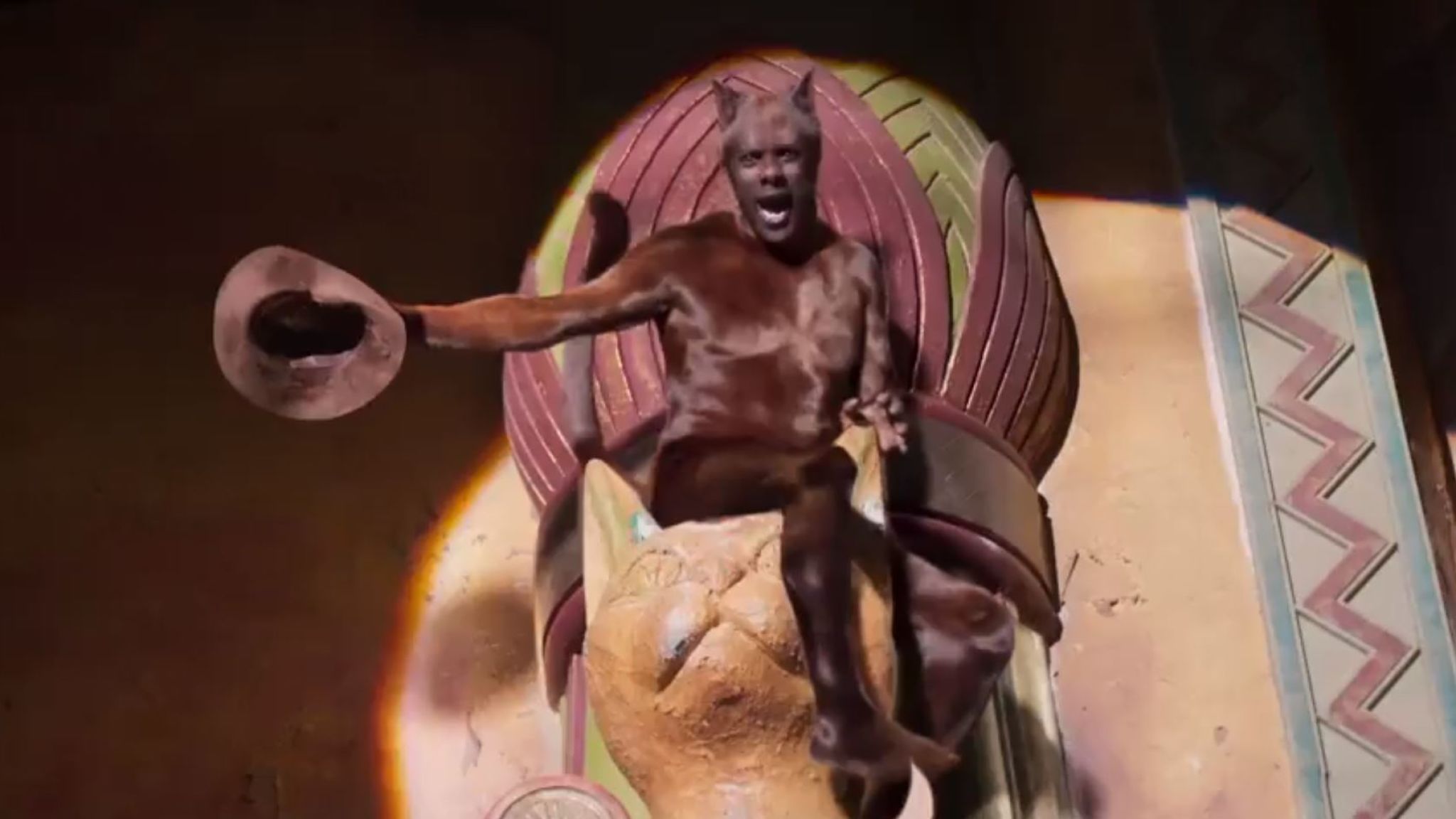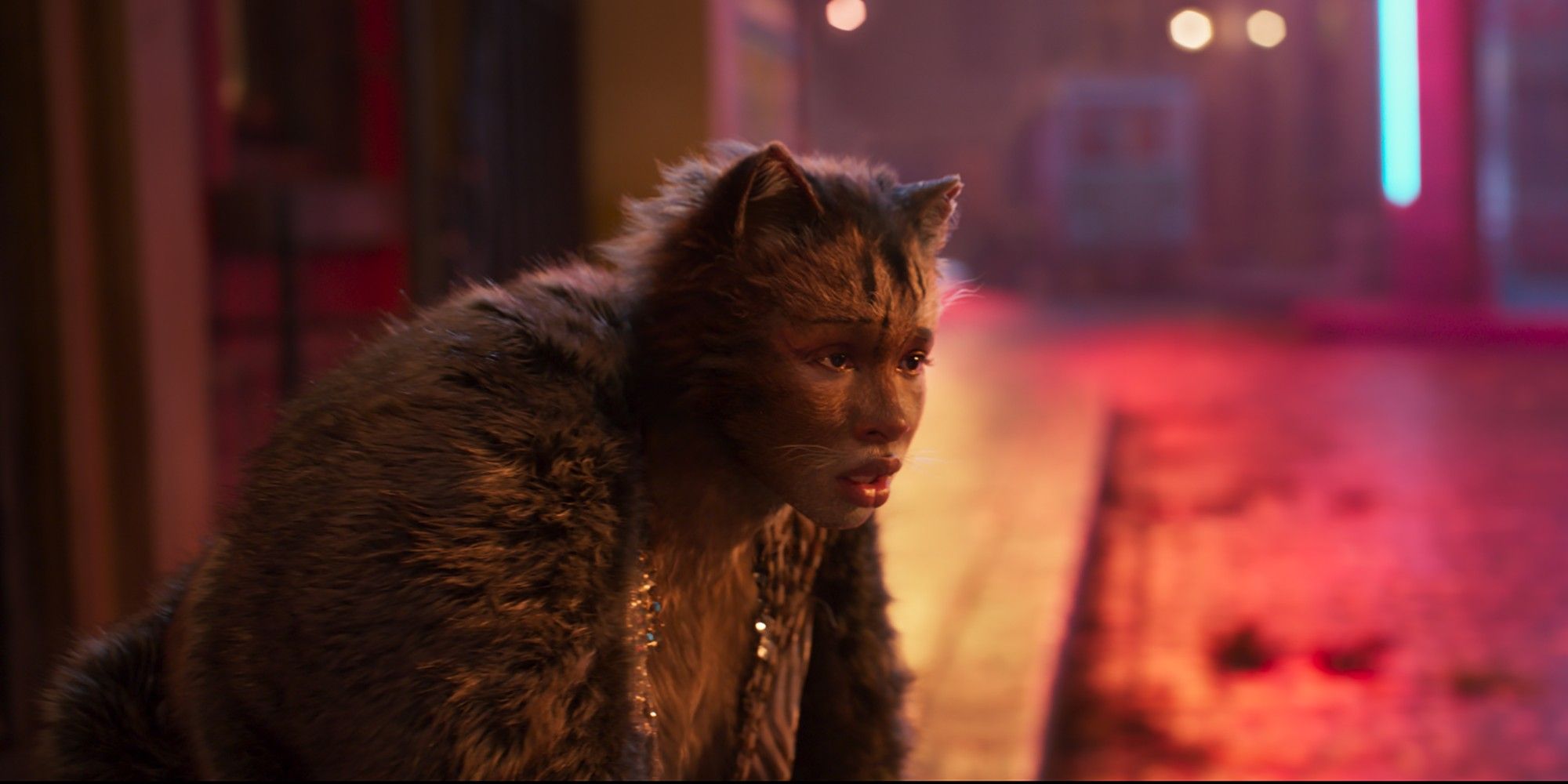Cats has been confusing audiences for decades on stage but the movie’s changes make its ending even more perplexing than usual! Universal Pictures and director Tom Hooper took on the unenviable task of adapting Andrew Lloyd Webber’s wildly popular but deeply weird musical for the big screen. Most musical lovers have long considered the show, one of the longest-running on both the West End and Broadway, to be inherently unadaptable. After all, this is a musical with no spoken dialogue that’s all about a group of cats singing to compete for the honor to die and be reincarnated.
Still, Cats is a massively beloved show that audiences still feel a lot of goodwill to, so it’s no wonder that Universal put down a reported $95 million budget for a family-friendly movie musical, just in time for Christmas. But with only a few days left of 2019, Cats stands as one of the true mega-flops of the year and perhaps one of the worst-reviewed movies of the decade.
For fans of the show and novices alike, there is much to complain about, especially relating to the changes made to the story. Cats made the understandable but perhaps ill-conceived choice to add a linear narrative to its episodic structure, making Macavity (Idris Elba) the central villain and Victoria the White Cat (Francesca Hayward) the point-of-view protagonist. What it ended up doing, on top of further confusing audiences, is make the show’s odd ending even weirder.
How Does the Cats Movie End?
In the film version of Cats, Victoria becomes the central heroine: a former house cat abandoned by her owner, who finds herself part of the Jellicle Tribe as they meet to make their annual Jellicle Choice. Tribe leader Old Deuteronomy (Judi Dench) picks one cat every year to ascend to the Heaviside Layer where they will be reborn into the life they have always wanted. The Jellicle Ball of the movie has many candidates this year, including Bustopher Jones (James Corden), Jennyanydots (Rebel Wilson), and Gus the Theater Cat (Ian McKellen.) However, after each of them makes their musical case for being chosen, Macavity kidnaps them with the intention of forcing Old Deuteronomy to choose him as the winner.
She is eventually saved by Mr. Mistoffelees (Laurie Davidson), and the choice can be made free of Macavity’s meddling. After singing the show’s most iconic song “Memory,” Grizabella (Jennifer Hudson) is chosen as the winner. She ascends into the sky towards the Heaviside Layer in a chandelier attached to a hot air balloon. Macavity, however, tries to make one last attempt at escape, latching into a rope hanging from the chandelier. He loses his grip and ends up stuck on the top of Nelson’s Column with no hope of rescue as Grizabella journeys towards a new life.
What Is the Heaviside Layer?
The Heaviside Layer is actually a real thing, although it is typically better-known as the Kennelly-Heaviside layer. This is the name given to the layer of ionized gas occurring between roughly 56 and 93 miles above the ground. It's one of several layers in the Earth's ionosphere and one that was discovered would reflect radio signals back to earth.
The Heaviside Layer did not appear in T.S. Eliot's original collection of poems, Old Possum's Book of Practical Cats, on which the musical is based. Rather, during correspondence with composer Andrew Lloyd Webber, Eliot's widow and the executor of his estate Valerie Eliot mentioned that all cars eventually go “up up up to the Heaviside Layer." This was helpful for Lloyd Webber and the production team of Cats in that it gave them something to string these disconnected and random poems together. In the context of Cats, the Heaviside Layer is essentially Heaven, or the next step of existence that leads to reincarnation. It's where the chosen Jellicle cat is sent before they can become the cat they have always wanted to be reborn into.
There are various ways the journey to the Heaviside Layer can be interpreted. Most see it as a sort of Christian afterlife, since the show itself is pretty full of similar imagery and rhetoric. Others have more morbidly imagined the Jellicle choice as a feline ritual sacrifice or an escape from the purgatory of the Jellicle junkyard (in the film, the cats roam about London more freely than they do on stage, where the show has one set).
Why the Changes to Macavity?
On stage, Macavity is a minor antagonist who doesn’t really make an impact on the story, such as it is. He mostly skulks around in the shadows and pops up for his title song, which he doesn’t sing. He kidnaps Old Deuteronomy then tries to appear before the Jellicles in disguise, but is chased off before Old Deuteronomy is magicked back. He’s as close as the show gets to having a villain but, as with basically everything else in Cats, doesn’t exactly make a tangible impact on the wider (non-existent) narrative.
In the film, Macavity (as played by Idris Elba) is the big baddie who is directly involved in meddling with the Jellicle ball in the hopes of being chosen to be reborn into a new life. This Macavity is much more evil, seemingly acting as a pimp to the disgraced Grizabella and pushing catnip on the other cats. This may explain why he’s so keen to receive a new life (something he doesn’t seem especially driven by in the musical). The movie Macavity is also inexplicably magical, having the power to appear and disappear at will. No details are given about this, which makes his sudden inability to magic away from the top of Nelson’s Column at the end of the film even more baffling.
Why Is Grizabella Chosen?
Grizabella the Glamor Cat is an aging cat who was famously beautiful and beloved before her prime years passed, and has now become a social outcast whom the other Jellicles do not trust. In the context of the musical, the implication for Grizabella is that society has shunned her because she is an elderly woman. This doesn’t work in the movie, where Old Deuteronomy has been gender-swapped to accommodate the casting of Judi Dench, so the shaming of Grizabella (now played by Jennifer Hudson) goes further by implying she was a sex worker who went to be pimped out by the criminal Macavity. It’s certainly a strong thematic choice for Cats to make, although one that opens up further questions given how weirdly sex-driven the rest of the story is.
Grizabella is invited back into the Jellicle fold by Victoria, the only cat in the movie who seems to sympathize with her plight until she shares her emotional journey through the song “Memory.” Both on stage and in the film, this is the moment where the other cats welcome her back to the tribe and Old Deuteronomy chooses her as the recipient of the Jellicle choice. Out of all the candidates, she’s clearly the one who needs a new life the most and seems to have done enough to earn it - although, in fairness, it’s hard to understand why cats like Jennyanydots and Skimbleshanks the Railway Cat want new lives when the ones they have seem pretty sweet, especially in comparison to Grizabella’s.
Cats has never been especially concerned with providing a traditional or cohesive narrative for audiences, which may be a large reason why it was so successful on stage. Anyone can keep up with the songs and dancing without having to worry about the story, which is especially helpful for Broadway and West End where the lion’s share of long-term audiences are tourists who don’t have English as their first language. That’s not something films fare well with, so it’s understandable why Cats would want to add a solid plot to its adaptation, but the end result makes a simple ending into something stranger but no less uninteresting.

